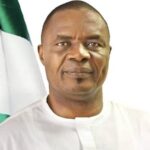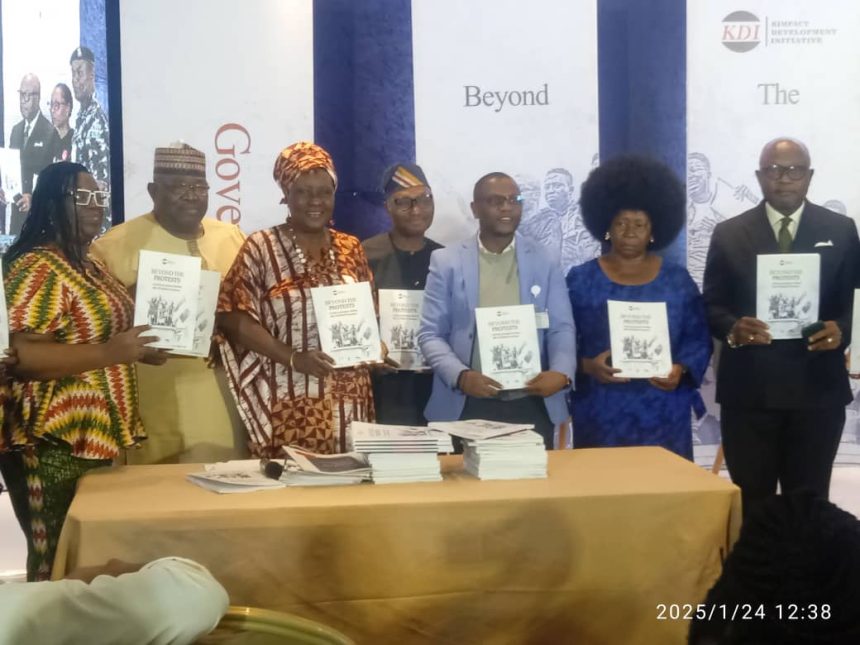An NGO, Kimpact Development Initiative (KDI), says protests are powerful catalysts for change and promoting civic action in shaping the future of any country.
Executive Director of KDI, Mr Bukola Idowu, stated this at the public presentation of a report, titled: “Beyond the Protests….Towards Governance Reforms after EndBadGovernance’’, on Friday in Abuja.
The News Agency of Nigeria (NAN) reports that the report was a 130-page documentation produced by KDI to present findings on its comprehensive study of the recent #EndBadGovernance protests in Nigeria.
Speaking at the event, Idowu said that the findings were pivotal to Nigeria’s socio-political evolution.
“These protests, alongside others such as #EndSARS, have showcased the remarkable power of civic action in shaping the future of our nation.
“Our study delved into the complexities and implications of protests in Nigeria, examining critical dimensions, such as regional responses, the rule of law and the transformative role of social media in amplifying civic action.
“Nigeria has a history of protests, and I’m very sure some of us would have walked through the gallery to see a time series of notable protests in Nigeria, even since 1929. Nigeria has a history of protests dating back to the colonial era.
“However, recent movements and protests have demonstrated that protests are not merely expressions of dissent but powerful catalysts for social change,’’ he said.
Idowu said that the study aimed to contribute to a deeper understanding of the factors driving protests and their impacts on governance and human rights as well as the role of social media in shaping civic action.
“We aspire for these findings to inform policy decisions, guide advocacy efforts and inspire ordinary citizens to actively engage in promoting good governance, human rights and social justice,’’ he said.
Speaking at the occasion, a don, Prof. Adetunji Ogunyemi, described protests as instruments of public mobilisation.
Ogunyemi, in a Keynote Exploration tagged: ‘From Protest to Policy: Charting Governance Reforms in Nigeria’, said protests were a manifestation of dissatisfaction and the privilege enjoyed by citizens in a liberal democratic society.
He, however, said that government had a duty to intervene in any protest that degenerated into riots.
“Based on the Theory of Public Responsibility, protests are necessary and key to the sustenance of any liberal democratic society.
“Government has a duty to listen to and use the reports of protests and to apply same in social reengineering.
“Protesters are duty-bound to observe the requirements of orderly conduct since no nation prospers in anarchy,’’ Ogunyemi said.
In his own remarks, the Executive Director, WARD C, Dr Abiola Akinyode-Adejobi, called for more documentation on how women had participated in protests, citing ‘BringBackOurGirls’ protests as an example.
Akinyode-Adejobi said had become necessary so that history would record the impacts of women in shaping the nation in good governance.
According to her, to get more impactful protests, demands must be well-spelt out while the organisers build public trust.
The Executive Secretary, National Human Rights Commission, Mr Okechukwu, stated that there were government workers who were involved in regime protection.
This, Ojukwu said, often posed a challenge because such people frustrate the commission’s commitment to serving justice.
Represented by an official of the commission, Ojukwu clarified that children under the age of seven are not criminally liable for participating in protests.
The Force Public Relations Officer (FPRO), Mr Muyiwa Adejobi, said that the police would not stop people from protesting as long as it did not degenerate into chaos.
According to Adejobi, who was represented by ASP Victor Isuku, the police only intervene in protests where they get intelligence report of likely disruption of public peace.











